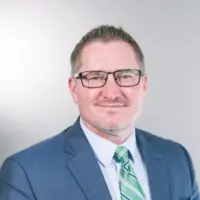They provide exemplary mental health and addiction therapy for those in need. They also provide foster care. I'm always surprised by the quality of care provided.
About Adult and Child Center – Siear Terrace
Through a combination of social services and behavioral health treatment, Adult and Child Center – Siear Terrace helps you overcome any issue stopping you from thriving. You can find them in Indianapolis, Indiana. There is ample parking available just outside the center.
They also have a crisis walk-in center around the corner at 8320 Madison Avenue. Through their care coordination services, you’ll have a seamless experience going from addiction care to healthcare and back again.
Flexible Medication Schedule for Cravings Management
Along with evidence-based therapy techniques shared in one-on-one and group settings, their addiction care programs also include medication assisted treatment (MAT) to reduce cravings and reduce the risk of relapse.
Provided you have a prescription, you can show up for walk-in injections on Tuesday and Thursday mornings any time between 9:00 a.m. and 12:00 p.m.
Community Building for Adults and Youths
One of the best parts about the Adult and Child approach is that it prioritizes community building and integration. They have dedicated community support networks to help adults and youths connect with the right programs and people.
The youth community services get kids in contact with safe adults and can smoothly intervene during times of crisis. The adult services cover housing, primary healthcare, and helping you find supportive groups to join. I like that they go out of their way to make you feel welcomed and a part of the communities they build.
Mixed Reviews Regarding Administration
Some past clients found it hard to get hold of the offices, both before the intake process and after they’d had their first appointment. It seems like they’re a good option if you aren’t in a hurry, since a few clients mention being completely satisfied with the help they received once past the administrative hurdles.
Latest Reviews
Rehab Score
Location
Accepted Insurance
Other Forms of Payment
Medicaid is a state based program that helps lower-income individuals and families pay for healthcare. Medicaid covers addiction treatment so those enrolled can use their coverage to pay for rehab. When a program accepts Medicaid the client often pays very little or nothing out of their own pocket.
Private insurance refers to any kind of healthcare coverage that isn't from the state or federal government. This includes individual and family plans offered by an employer or purchased from the Insurance Marketplace. Every plan will have different requirements and out of pocket costs so be sure to get the full details before you start treatment.
Self-pay involves paying for treatment out of your own pocket. You can use savings or credit, get a personal loan, or receive help from family and friends to fund your treatment. If you don't have insurance or your insurance plan doesn't cover a specific program, self-pay can help ensure you still get the care you need.
Sliding scale payments are based on a client's income and family size. The goal is to make treatment affordable to everyone. By taking these factors into account, addiction recovery care providers help ensure that your treatment does not become a financial burden to you or your family, eliminating one barrier to care.
Addiction Treatments
Levels of Care
Outpatient Programs (OP) are for those seeking mental rehab or drug rehab, but who also stay at home every night. The main difference between outpatient treatment (OP) and intensive outpatient treatment (IOP) lies in the amount of hours the patient spends at the facility. Most of the time an outpatient program is designed for someone who has completed an inpatient stay and is looking to continue their growth in recovery. Outpatient is not meant to be the starting point, it is commonly referred to as aftercare.
Treatments
Mental health rehabs focus on helping individuals recover from mental illnesses like bipolar disorder, clinical depression, anxiety disorders, schizophrenia, and more. Mental health professionals at these facilities are trained to understand and treat mental health issues, both in individual and group settings.
Programs
Young adulthood can be an exciting, yet difficult, time of transition. Individuals in their late teens to mid-20s face unique stressors related to school, jobs, families, and social circles, which can lead to a rise in substance use. Rehab centers with dedicated young adult programs will include activities and amenities that cater to this age group, with an emphasis on specialized counseling, peer socialization, and ongoing aftercare.
Clinical Services
Cognitive Behavioral Therapy (CBT) is a therapy modality that focuses on the relationship between one's thoughts, feelings, and behaviors. It is used to establish and allow for healthy responses to thoughts and feelings (instead of unhealthy responses, like using drugs or alcohol). CBT has been proven effective for recovering addicts of all kinds, and is used to strengthen a patient's own self-awareness and ability to self-regulate. CBT allows individuals to monitor their own emotional state, become more adept at communicating with others, and manage stress without needing to engage in substance abuse.
Whether a marriage or other committed relationship, an intimate partnership is one of the most important aspects of a person's life. Drug and alcohol addiction affects both members of a couple in deep and meaningful ways, as does rehab and recovery. Couples therapy and other couples-focused treatment programs are significant parts of exploring triggers of addiction, as well as learning how to build healthy patterns to support ongoing sobriety.
Research clearly demonstrates that recovery is far more successful and sustainable when loved ones like family members participate in rehab and substance abuse treatment. Genetic factors may be at play when it comes to drug and alcohol addiction, as well as mental health issues. Family dynamics often play a critical role in addiction triggers, and if properly educated, family members can be a strong source of support when it comes to rehabilitation.
Group therapy is any therapeutic work that happens in a group (not one-on-one). There are a number of different group therapy modalities, including support groups, experiential therapy, psycho-education, and more. Group therapy involves treatment as well as processing interaction between group members.
In individual therapy, a patient meets one-on-one with a trained psychologist or counselor. Therapy is a pivotal part of effective substance abuse treatment, as it often covers root causes of addiction, including challenges faced by the patient in their social, family, and work/school life.
Trauma therapy addresses traumatic incidents from a client's past that are likely affecting their present-day experience. Trauma is often one of the primary triggers and potential causes of addiction, and can stem from child sexual abuse, domestic violence, having a parent with a mental illness, losing one or both parents at a young age, teenage or adult sexual assault, or any number of other factors. The purpose of trauma therapy is to allow a patient to process trauma and move through and past it, with the help of trained and compassionate mental health professionals.
Staff

CJ Davis
President & CEO

Jessica Stembel, PsyD, HSPP, IMH-E
COO

Kerri Lewis
Executive VP, Administration

Christine E. Negendank, M.D., M.B.A., C.C.H.P
Chief Medical Officer
Contact Information
8404 Siear Terrace
Suite 100
Indianapolis, IN 46227





